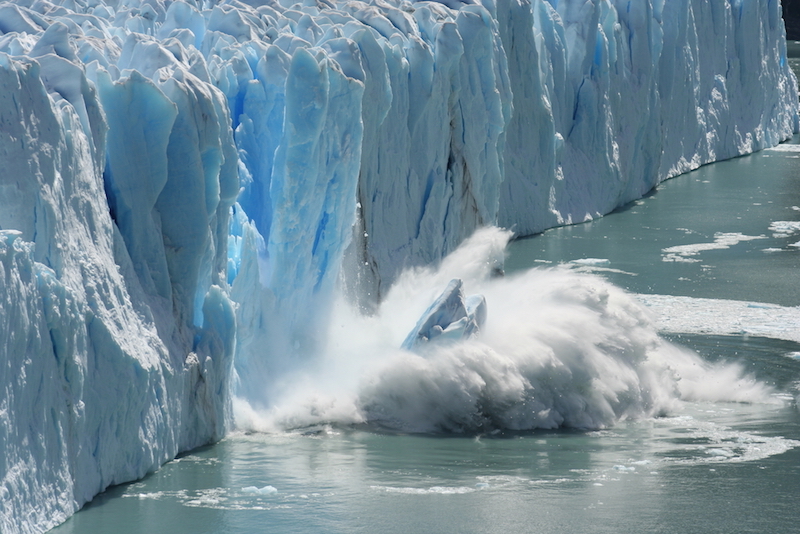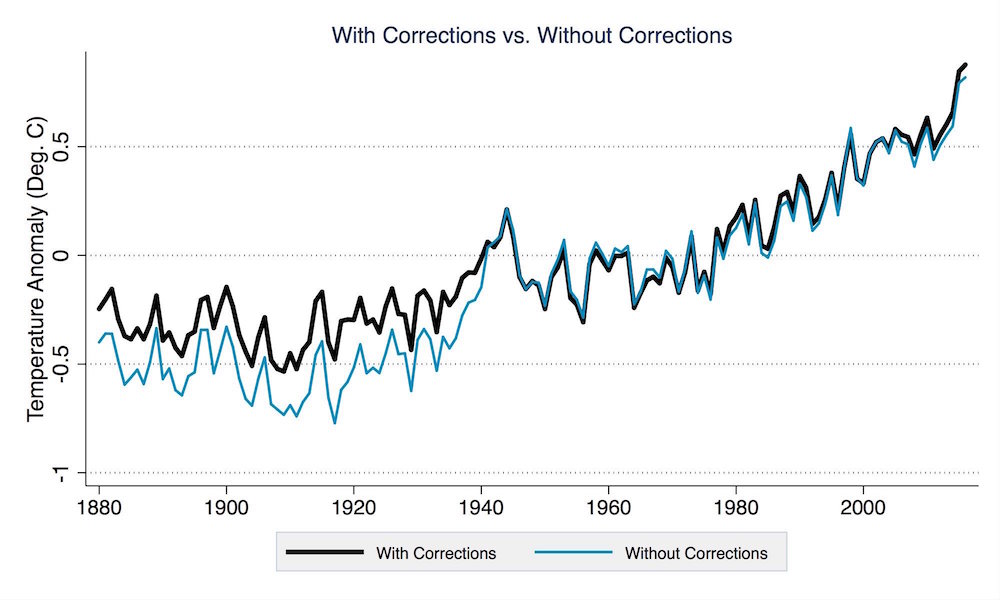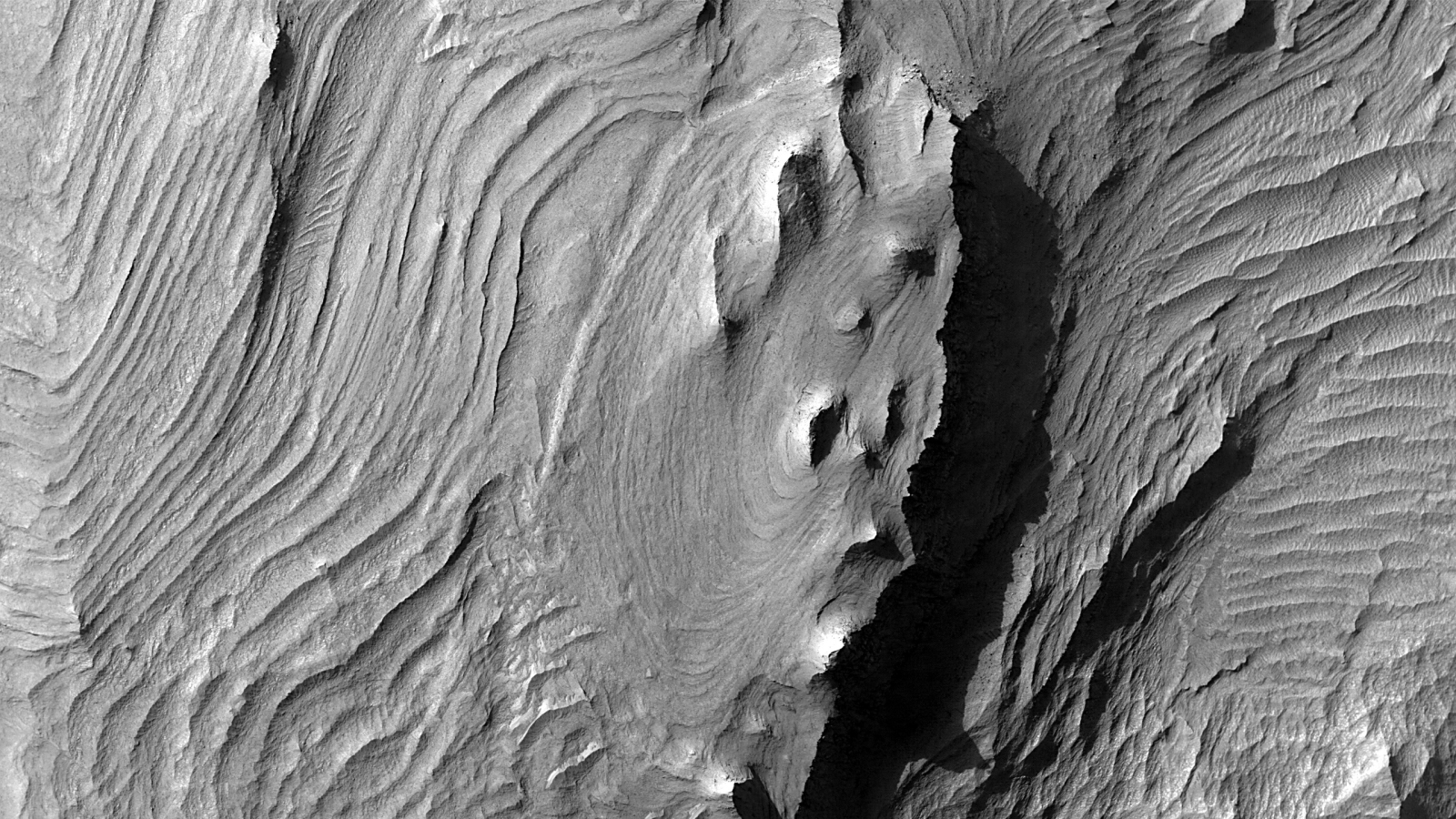Despite Whistleblower's Concerns, Climate Change Study Called Sound

Climate change doubters have seized upon a new accusation suggesting that scientists with the National Oceanic and Atmospheric Administration manipulated temperature data in a 2015 study on climate change to reach a desired conclusion. The accusations, scientists said, are off-base.
And they reiterate that global warming is happening and humans are primarily to blame.
The accusations, which began with a blog post by former NOAA scientist John Bates, spread across the internet — the Daily Mail's headline indicates "world leaders were duped into investing billions over manipulated global warming data." Bates' target is a study published in the journal Science that found no evidence for the so-called "climate change hiatus" — a 14-year period starting in 1998 during which the increase in the planet's temperatures reportedly slowed. (Climate change doubters have used this phenomenon as evidence the world is not warming.)
Rather, the researchers of the 2015 study, led by Tom Karl, the former director of NOAA's National Centers for Environmental Information, found that "warming has continued at a pace similar to that of the last half of the 20th century, and the slowdown was just an illusion," they wrote in the study. [The Reality of Climate Change: 10 Myths Busted]
Bates and some media outlets have it wrong, scientists said: "What he fails to mention is that the new NOAA results have been validated by independent data from satellites, buoys and Argo floats, and that many other independent groups, including Berkeley Earth and the U.K.'s Met Office Hadley Centre, get effectively the same results," wrote Zeke Hausfather, a climate scientist at Berkeley Earth, an independent temperature nonprofit in California, in a blog post regarding the Daily Mail article.
Climate records and blog posts
In a blog post published Saturday (Feb. 4), Bates said that the land temperature data set included in the 2015 study was not properly vetted. In addition, Bates wrote that the study's data was not made available to the public "with rigorous information preservation standards." [Earth in the Balance: 7 Crucial Tipping Points]
Bates' blog, which purported that the study "maximize[d] warming and minimize[d] documentation," quickly made its way around on the internet.
Get the world’s most fascinating discoveries delivered straight to your inbox.
On Sunday (Feb. 5), the U.S. House of Representatives science committee, one known for spreading climate change doubt, issued a press release stating, "Former NOAA Scientist Confirms Colleagues Manipulated Climate Records."
However, that's far from the case, Hausfather said.
Hausfather wasn't involved in the 2015 study, but published a study in January, in the journal Science Advances, that confirmed the 2015 study's findings by using different data sets, including data not used by NOAA.
New data set
Bates included several complaints in the blog post, including a concern about one of the data sets. In the 2015 study, the researchers used two NOAA data sets — a newly approved one on ocean temperatures and an unapproved one on land temperatures.
It was inappropriate to use the land temperature data set, which had not gone through NOAA's official vetting process, wrote Bates, who was not involved in the 2015 study.
Vetting processes exist for official records, such as for an official U.S. temperature record or an official global temperature record, Hausfather said.
Hausfather noted that the land temperature data set, which is still undergoing the vetting process, is a collaboration between NOAA and scientists across the world to collect and archive the world's land temperature data in one place. It relies on about five times the number of temperature measurement stations as NOAA's current land temperature data set, Hausfather said.
The data set's breadth was what made the 2015 study "more novel, since there had already been a paper on the new ocean record [NOAA] had put together," Hausfather told Live Science.
The authors of the 2015 study said that it was fine to include the new data set, "because it was for an academic publication and not for the release of an official temperature record," Hausfather said. "They were OK using a new research product, especially because they argued that it was more accurate than the old product." [The Year in Climate Change: 2016's Most Depressing Stories]
The funny thing is…
The data set may not be approved, but "the funny thing is, at the end of the day, it makes very little difference," Hausfather said.
The unapproved land temperature data set was only about 5 percent warmer than the old, approved land temperature dataset, "mostly due to inclusion of more stations up in the Arctic that have been warming quickly," Hausfather said.
"They're largely the same," he said. "It made almost no difference."

Moreover, most of the warming the researchers found came from the approved ocean temperature data set, Hausfather said.
In addition, the researchers of the 2015 study did publically post the data they used, Hausfather said.
Bates wrote that the data was not in machine-readable form, "but for the life of me I can't figure out what that means," Hausfather said. "My computer can read it fine, and it's the same format that other groups tend to present their data."
Accurate results
It's important to note that even though Bates' blog post suggests "he was unhappy that specific internal procedures weren't followed for the land part of this paper," the retired scientist didn't actually call the study's results into question, Hausfather said.
In other words, Bates' blog isn't disputing that climate change is a real problem, Hausfather said.
"I think this is being spun by folks, the Daily Mail in particular, in a way that doesn't reflect the actual complaints that Bates has," Hausfather said.
Original article on Live Science.

Laura is the archaeology and Life's Little Mysteries editor at Live Science. She also reports on general science, including paleontology. Her work has appeared in The New York Times, Scholastic, Popular Science and Spectrum, a site on autism research. She has won multiple awards from the Society of Professional Journalists and the Washington Newspaper Publishers Association for her reporting at a weekly newspaper near Seattle. Laura holds a bachelor's degree in English literature and psychology from Washington University in St. Louis and a master's degree in science writing from NYU.
